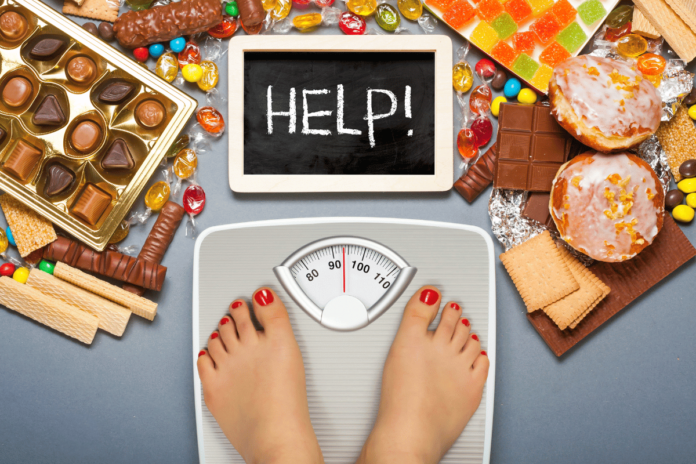These days, people usually try to maintain their physical activity and reduce weight mostly by food. While diets contain advantages as well as disadvantages, knowing these things can help people make wise choices for their health and well-being. This page will outline the benefits of dieting, provide practical diet plans, and debunk popular misconceptions about it.
What is Dieting?
To control an existing ailment or lose weight, dieters eat particular foods or stay away from particular food groups. Different foods can be added or removed in any of the several diets that exist. A balanced diet typically includes a diverse array of nutrient-rich foods such as fruits, vegetables, lean proteins, whole grains, and low-fat dairy products.
The Benefits of Dieting:
A healthy diet has so many advantages that may raise standard of living. Among the several advantages of diet, these are but a few:
Weight Loss:
People choose diets mostly in order to reduce weight. People can choose nutrient-dense alternatives to unhealthy, high-calorie diets and safely and sustainably accomplish their desired weight goals.
Improved Digestive Health:
Eating healthfully supplies the body with essential vitamins and minerals for efficient digestion and nutrient absorption. Additionally, a high-fiber diet can help relieve constipation and reduce gas.
Low Risk of Chronic Disease:
If one eats a diet high in essential nutrients, they may be less prone to get some malignancies, heart disease, diabetes, and stroke. Controlling blood pressure and lowering cholesterol are further benefits of a heart-healthy diet.
Can I lose weight without Dieting?
Unbelievably, you can actually drop pounds without eating a diet. Though calorie restriction is still quite important, one can maintain a healthy weight with better habits and an active lifestyle. You can start developing good habits by staying away from added sugars and overly calorie-dense beverages. Moreover, set aside time every day for exercise and look for alternative ways to move more throughout the day, such walking after dinner or using the stairs instead of the lift. Be sure you get enough excellent sleep every night to optimize your physical and mental health.
Dieting Strategies:
Beginning a diet requires establishing a strategy for achieving your nutritional objectives and changing your way of life. Use of the following dietary techniques may help you maintain motivation:
Set Attainable Goals:
Check if, considering your lifestyle and current activities, your goals are reasonable and feasible. Never forget that you are travelling, so don’t be too hard on yourself if you don’t succeed immediately.
Meal Plan:
Schedule your weekly meals and shopping to keep on track. A list of all the things you’ll need in advance will enable you to avoid grabbing for junk food when you’re starving or at a loss for ideas.
Include Variety:
A variety of foods is essential when on a diet. With this strategy, you will avoid nutrient shortages and have more exciting meals. Moreover, introducing variety in terms of flavours, colours, and textures to meals could make them enjoy them more.
Be Mindful:
Using mindful eating, you may identify your eating habits and track your feelings following several meals. Chewing, tasting, and enjoying your meal with purpose means paying attention to your body’s cues for fullness and hunger.
Benefits of Physical Activity:
Diets are not the secret of weight loss; exercise is. Routine exercise builds muscles and bones, improves general fitness, and burns calories. Every day, even when you’re not moving, you burn more calories since exercise raises metabolism. Try to work in 75 minutes of intense activity or 150 minutes of moderate exercise per week.
Types of Physical Activity:
You can fit in a lot of different physical activities into your daily schedule. Your chosen type of exercise will depend on your likes, goals, and level of fitness. Among such exercise activities are:
- Brisk walking
- Running
- Cycling
- Swimming
- Yoga
- Strength training
- High-intensity interval training (HIIT)
Make Healthy Habits:
Top priorities should include maintaining a healthy lifestyle and getting frequent exercise. Without adhering to a stiff diet, the key to losing weight is to put back processed, sugary, and fatty foods with full, nutrient-dense foods. You’ll experience full and energized eating whole grains, fruits, veggies, lean meats, and other unprocessed meals. Moreover, obtaining enough of sleep is important since it controls your metabolism and lessens cravings.
One common diet tip that helps people lose weight and keep their health is to choose meals more carefully. There are a number of benefits even if dieting has a sometimes poor image. Moreover, a balanced lifestyle and the formation of positive habits may be connected to dieting rather than suggesting that one should practice restrictive eating. Understanding the strategies and effectiveness of nutrition can help readers to make better choices for their personal health and wellbeing.









